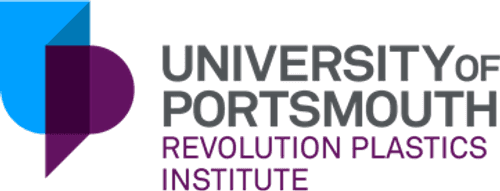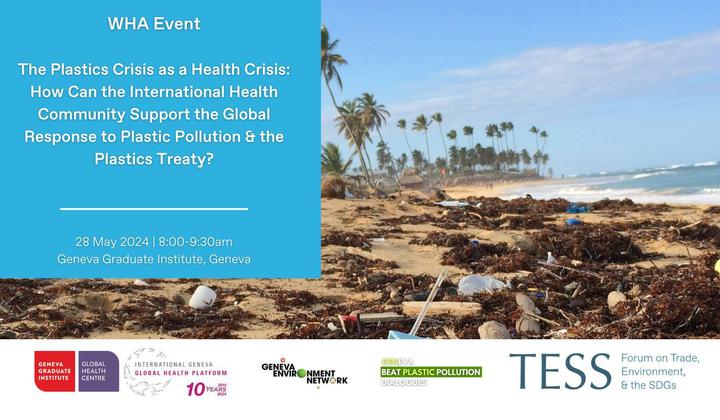In August this year, governments and stakeholders will gather for the second part of the fifth session of the Intergovernmental Negotiating Committee to develop an international legally binding instrument on plastic pollution, including in the marine environment (INC-5.2). As the negotiations advance, governments will need to ensure the treaty reflects human health considerations as well as the challenges of effective implementation.
This event, co-hosted by the International Geneva Global Health Platform and University of Portsmouth's Revolution Plastics Institute, aimed to answer questions about human health as a central issue for the plastics treaty, the range and depth of multisectoral cooperation that will be needed to implement the treaty, and how health sector stakeholders can support implementation of the treaty.
A growing body of evidence demonstrates a wide range of adverse impacts to human health associated with plastics and plastic pollution. Harmful health effects arise across the full life cycle of plastics, including during the production, use and waste phases, and disproportionately impact populations that are economically and politically marginalized.
International recognition of the urgent need to address plastic pollution as a global health and environmental crisis has been steadily growing. Following the adoption in 2022 of the United Nations Environment Assembly’s Resolution 5/14 ‘End plastic pollution: towards an international legally binding instrument’, negotiations have been underway to develop a plastics treaty.
In 2023, the 76th World Health Assembly also adopted a resolution calling on the World Health Organization (WHO) to scale up efforts to address the impact of chemicals, waste, and pollution - including plastics - on human health, with the goal of strengthening the public health response. According to the WHO, the plastic crisis is also a health crisis.
Coordinated international action and cooperation across a range of sectors at international, national, regional, and local levels will be required to achieve effective implementation. The health sector will have a critical role to play.
Registration
Agenda
12:30
Short video screening
Welcome remarks
- Ellen Rosskam, Coordinator, International Geneva Global Health Platform, Global Health Centre, Geneva Graduate Institute
Setting the stage
- Maria Neira, Director, Department of Environment, Climate Change and Health, World Health Organization
Moderated panel discussion
- Albert Magalang, Chief Environmental Management Specialist, Climate Change Service, Department of Environment and Natural Resources, Philippines
- Andrea Zbinden, Senior Policy Advisor and National Focal Point for UNEP and INC Plastic Pollution, Swiss Federal Office for the Environment
- Giulia Carlini, Manager & Senior Attorney, Environmental Health Program, Center for International Environmental Law (CIEL)
Moderated by Jane Muncke, Managing Director and Chief Scientific Officer, Food Packaging Forum
Interactive Q&A with audience and experts
Presentation, "Mapping Health Impacts Across the Plastics Life Cycle"
- Cressida Bowyer, Deputy Director Revolution Plastics Institute, University of Portsmouth
Closing remarks
- Carolyn Deere Birkbeck, Founder and Executive Director of the Forum on Trade, Environment & the SDGs (TESS)
14:00 - 15:00 Reception and opportunity to participate in 'Mapping Health Impacts Across the Plastics Life Cycle'
Protecting People and Planet: Supporting Implementation of the Future Plastics Treaty
We encourage you to watch the full event video.
Co-hosted with







